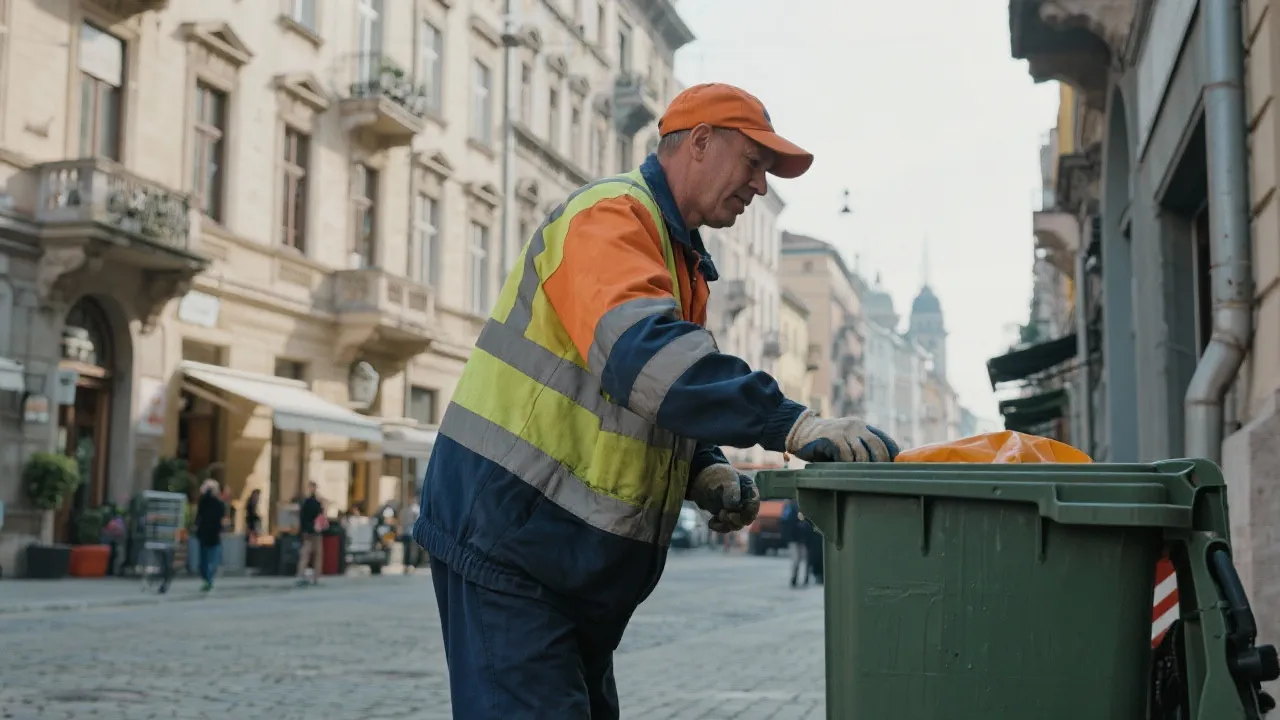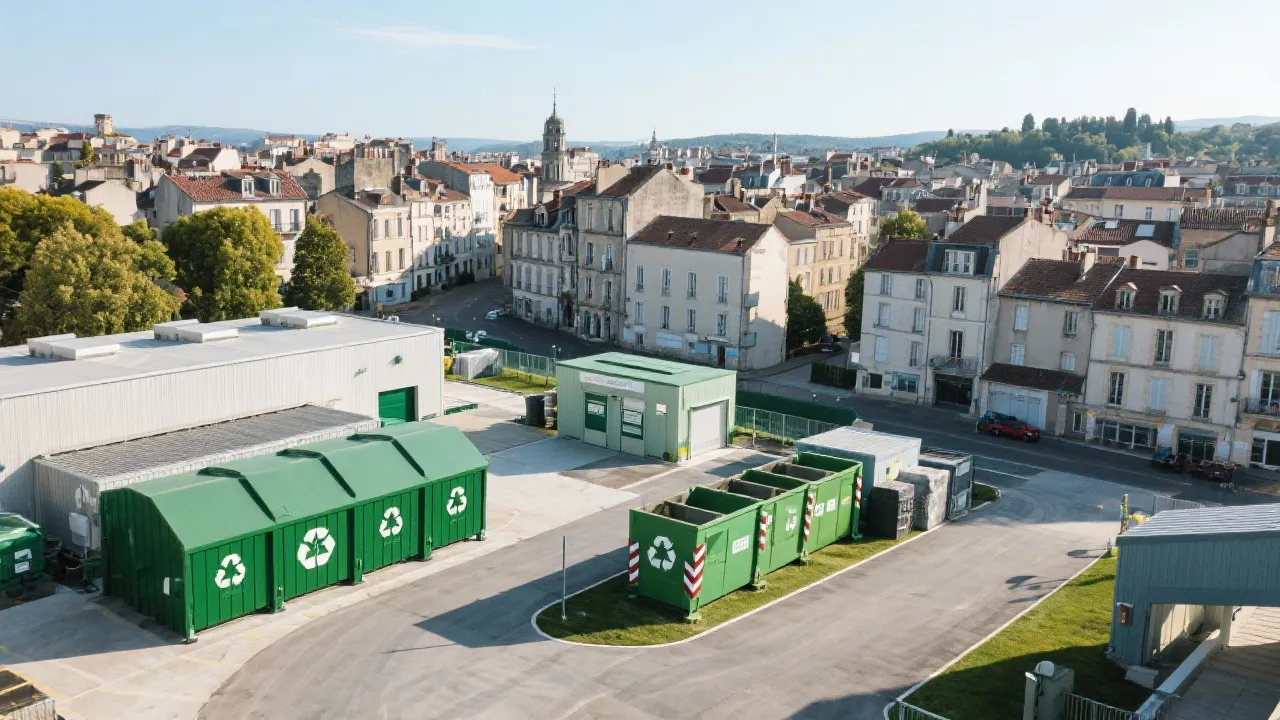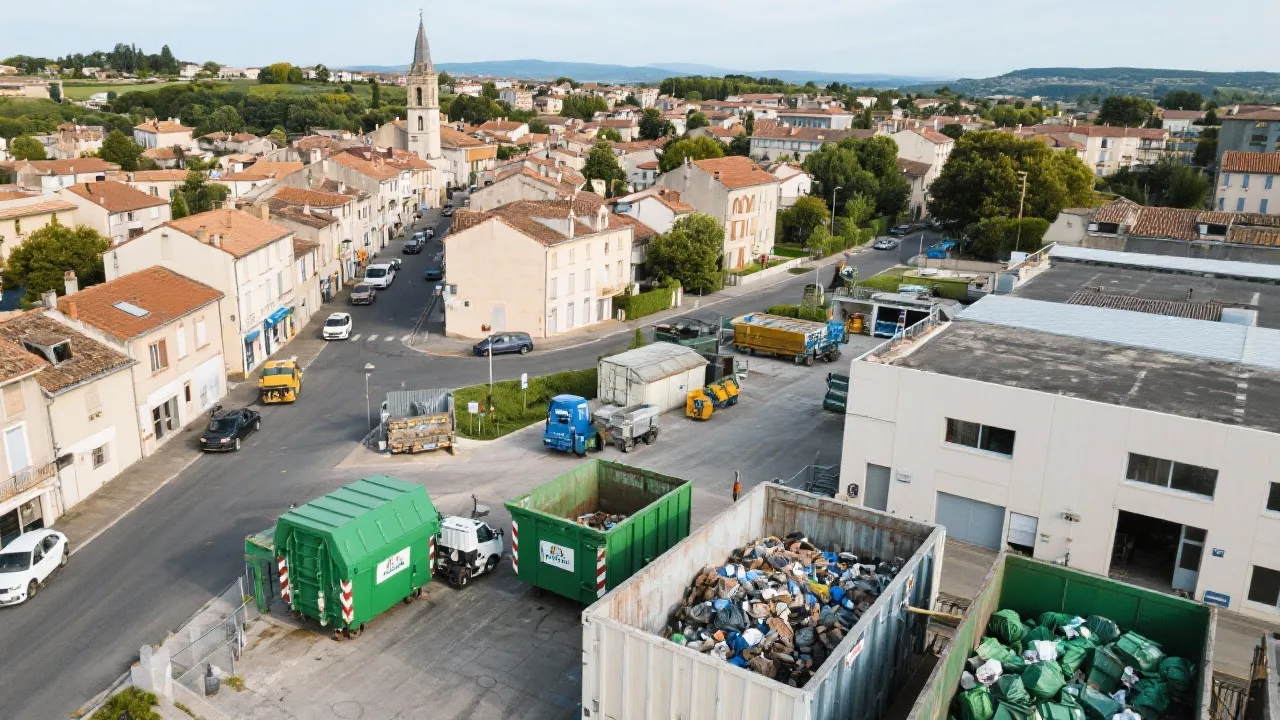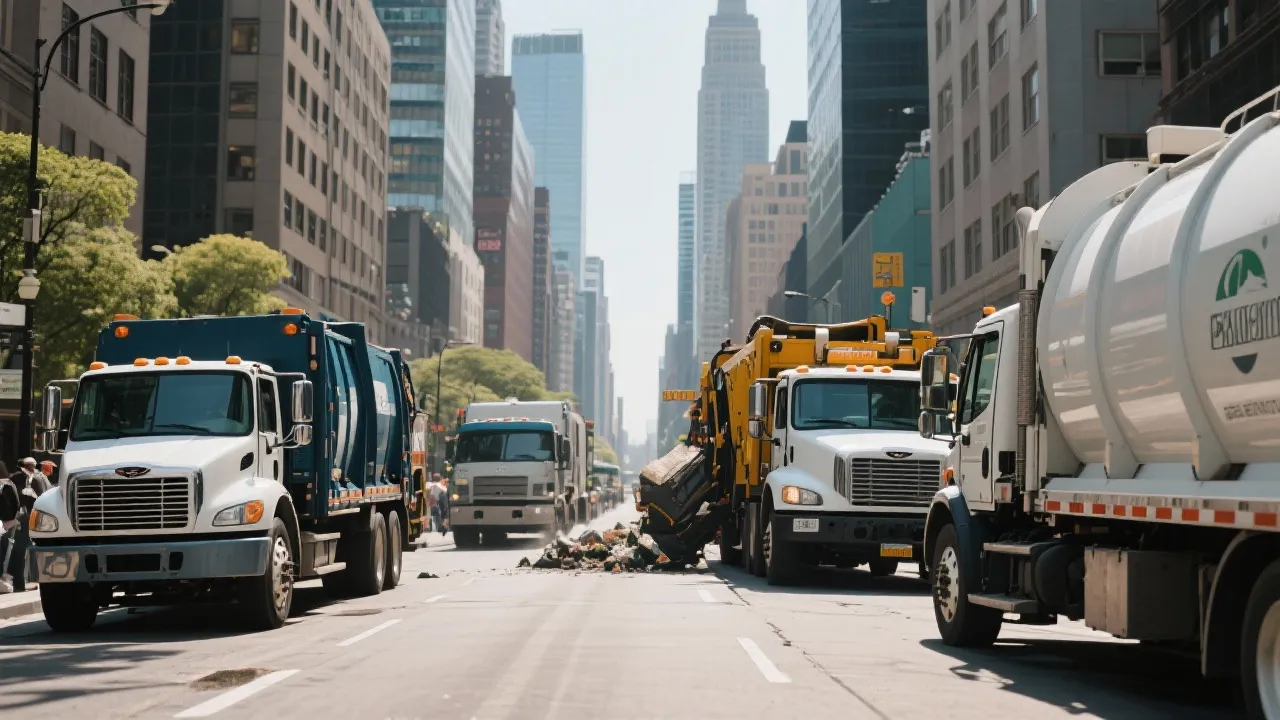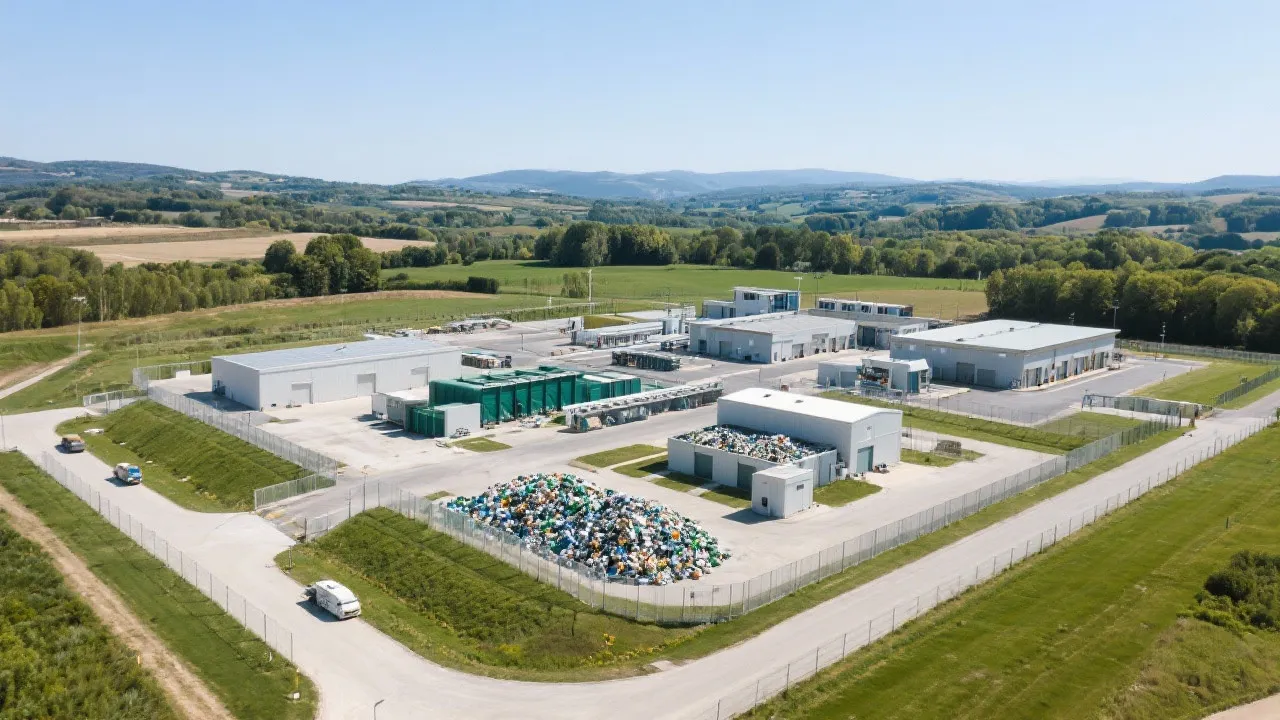Innovating Waste Management in France
This article explores waste management companies operating near you in France. These companies play a crucial role in sustainable urban living by managing waste collection, processing, and recycling. Their innovative approaches are vital in reducing environmental impacts and promoting a circular economy for a greener future.
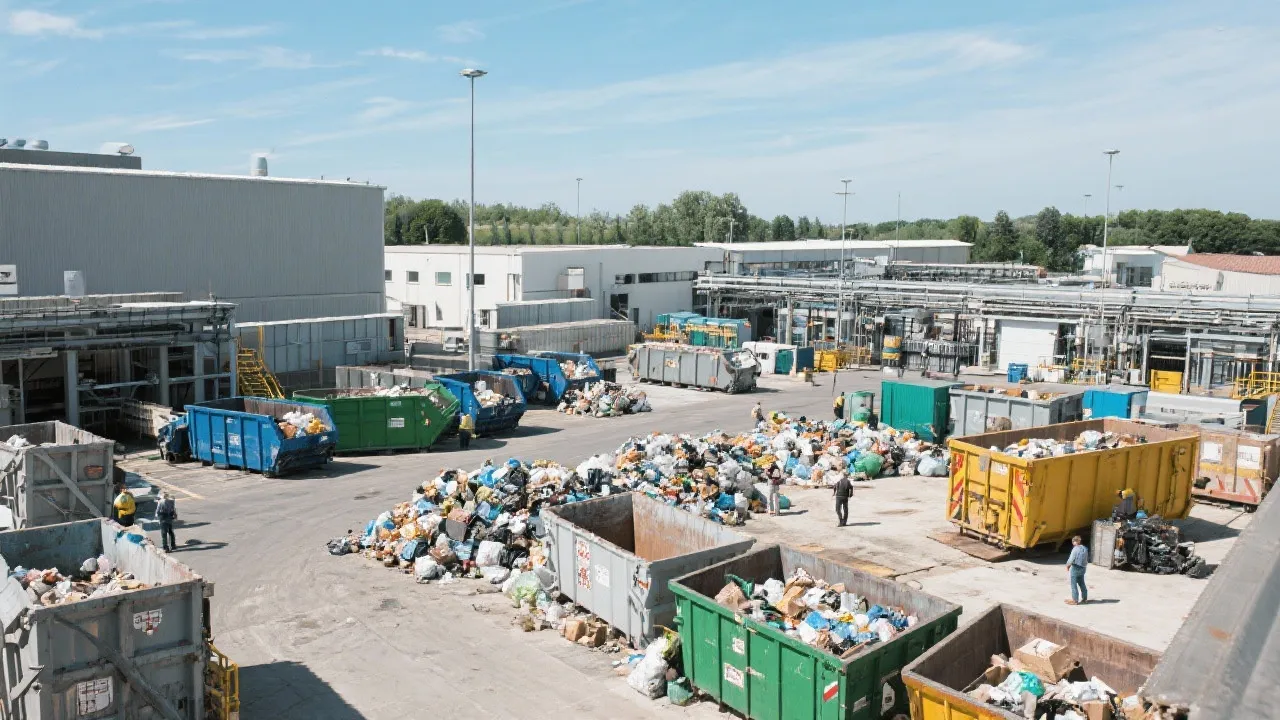
The Role of Waste Management Companies in France
In today’s rapidly urbanizing world, the phrase "Entreprises de Gestion des Déchets Près de Moi France" represents a significant aspect of urban infrastructure and sustainability. These companies are at the forefront of managing, processing, and recycling waste to foster a cleaner environment. The critical role they play is multifaceted, addressing not just the physical removal of waste, but also encompassing a broad range of services that contribute to a more sustainable future for cities and rural areas alike.
The Importance of Waste Management
Waste management is critical for any thriving society. Without effective waste management practices, cities face serious environmental challenges such as pollution, disease, and unsightly litter. In France, this sector is not only about collection and disposal but also about innovating for sustainability. French waste management companies strive to incorporate practices that support a circular economy—a concept integral to reducing waste and promoting recycling and re-use of materials. This shift toward sustainability reflects broader societal values and the growing demand for responsible consumption and environmental stewardship.
Effective waste management has far-reaching impacts. It reduces landfill waste, limits greenhouse gas emissions from waste decomposition, and conserves natural resources by promoting recycling and reusing materials. Additionally, effective waste management systems can enhance public health by minimizing hazards associated with waste accumulation and improper disposal. In urban areas, where population density is high, the importance of efficient waste management becomes even more pronounced, as improper management can lead to dire consequences for both the environment and public health.
Leading Waste Management Practices in France
Modern waste management techniques in France encompass several strategies, ranging from source segregation and composting to advanced recycling technologies. The integration of technology in waste management has led to improved efficiency in sorting and processing waste materials. For instance, smart bins equipped with sensors can monitor the levels of waste they contain, notifying collection services when they need to be emptied. This not only ensures timely collection but also helps in optimizing collection routes, reducing emissions from waste collection vehicles.
Furthermore, the use of IoT (Internet of Things) devices has allowed companies to track waste bins, optimize collection routes, and reduce operational costs, enhancing both economic and environmental benefits. Besides smart bins, other technological innovations include automated sorting facilities that utilize AI and advanced robotics to separate recyclable materials from general waste more effectively. This reduces human error and increases recycling rates.
In addition to technological advancements, France has adopted specific regulatory frameworks to promote better waste practices. The "Extended Producer Responsibility" (EPR) schemes place the onus on producers to manage the lifecycle of their products, from production to disposal. This encourages manufacturers to design products that are easier to recycle and less harmful to the environment. Meanwhile, public initiatives, such as community composting programs, have gained traction, allowing residents to reduce organic waste while simultaneously enriching local soil.
Challenges Faced by the Industry
Despite these innovations, waste management companies in France confront several challenges. One significant challenge is the high costs associated with technology implementation. While advanced sorting technologies and smart waste management solutions can significantly improve efficiency, the initial investment can be substantial. Smaller companies, in particular, may struggle to afford these upgrades, increasing the risk of a two-tier system where larger firms dominate.
Regulatory compliance is another hurdle. Companies must navigate a complex landscape of national and European regulations aimed at reducing waste and promoting recycling. Balancing compliance with operational efficiency can be difficult, especially for smaller operators who may not have the resources to keep up with changing legislation.
Additionally, managing hazardous waste poses a unique challenge. France’s strict regulations on hazardous materials require specialized handling, treatment, and disposal. Waste management companies must invest in training and equipment to handle these materials safely, which can add to operational costs. There’s also a growing need to adapt to global environmental policies, including those focused on reducing plastic waste and carbon emissions, which places further pressure on companies to innovate and comply with international standards.
Future of Waste Management in France
The future of waste management in France is aligned with global sustainability goals. Companies are increasingly focusing on reducing carbon footprints through the development of eco-friendly waste collection vehicles, such as those powered by electricity or hydrogen. These vehicles not only lessen environmental impact but can also operate more quietly, improving quality of life in urban areas.
Additionally, the implementation of waste-to-energy projects is gaining momentum. These projects involve converting non-recyclable waste materials into usable forms of energy, such as heat or electricity. France is investing in advanced technologies to ensure that these processes are safe and efficient, transforming waste into a resource for energy rather than merely disposing of it in landfills. Such initiatives can contribute to energy independence and sustainability, making them highly appealing for future developments.
Furthermore, as the population grows, public awareness campaigns are essential in encouraging waste reduction at the source and promoting recycling among residents. Educational initiatives can train citizens on best waste practices, teach them about the environmental impacts of waste, and instill a sense of responsibility towards sustainability. Engaging citizens in meaningful ways can also inspire pride in local environments and foster community initiatives aimed at reducing waste.
Innovative Case Studies in Waste Management
Several case studies from France showcase innovative approaches in waste management that can serve as blueprints for future initiatives. For instance, the city of Lyon has initiated a robust composting program that not only reduces organic waste but also promotes community involvement. Residents are encouraged to compost their kitchen scraps, with drop-off points located throughout the city. This program not only reduces the volume of waste sent to landfills but also provides rich compost for local parks and community gardens, promoting urban greenery and biodiversity.
Additionally, Paris has implemented smart waste bins equipped with sensors that inform waste management companies when they need to be emptied. This recent upgrade has reduced the number of trips required by waste collection trucks, resulting in decreased greenhouse gas emissions. Along with financial savings, this initiative has led to cleaner streets and enhanced public satisfaction.
In contrast, Lille has pioneered an urban mining project, focusing on the recovery of materials from electronic waste. By establishing facilities dedicated to the disassembly and recovery of precious metals and other materials from discarded electronics, Lille has positioned itself as a leader in e-waste recycling. This approach not only reduces waste but also conserves resources, making it a double win for sustainability.
Public Engagement and Community Involvement
At the heart of successful waste management are the communities themselves. Public engagement is vital when it comes to implementing effective recycling programs. Educational efforts aimed at informing residents about how to properly dispose of their waste and the importance of recycling can significantly enhance participation rates. Community events, such as clean-up days or recycling fairs, can further engage citizens and create a sense of collective responsibility toward waste management.
In many regions, local governments are partnering with schools to incorporate waste management education into their curriculums. By teaching younger generations about recycling, composting, and the impact of waste on the environment, these initiatives lay the groundwork for lifelong sustainable practices. Schools can serve as microcosms for communities, leading by example in waste management practices, and showing how collective actions can lead to significant change.
Additionally, social media campaigns have emerged as powerful tools for educating the public about waste management issues. Some companies use platforms like Instagram or Facebook to share tips, success stories, and challenges related to waste disposal and recycling, ensuring that information reaches a broader audience. Having relatable content can enhance community engagement, making waste management a topic of household conversation and action.
International Perspectives on Waste Management
France's approach to waste management is often compared to systems in other countries, providing valuable lessons and insights. Countries like Sweden and Germany have established highly efficient recycling and waste-to-energy systems that serve as models for others. In Sweden, the waste-to-energy model not only eliminates waste but also generates significant electricity for consumption. The country boasts an impressive recycling rate, with only around 1% of its waste ending up in landfills, positioning itself as a leader in sustainable waste management.
Germany, on the other hand, has excelled in implementing the Extended Producer Responsibility model, compelling companies to take responsibility for their products through their lifecycle. This approach has resulted in one of the highest recycling rates in Europe, with a significant portion of packaging materials being recovered and reintroduced into the production cycle. Such frameworks provide insights for France as it seeks to enhance its waste management practices while fostering a culture of sustainability and responsibility.
Future Technological Innovations
Looking ahead, the future of waste management in France will likely be shaped by emerging technologies. For instance, artificial intelligence (AI) continues to enhance sorting processes, making them more efficient and accurate. With further development in machine learning, waste management facilities could sort materials based on complex algorithms that recognize different types of recyclables and hazardous materials.
Additionally, advancements in bioengineering could lead to the creation of biodegradable materials that reduce reliance on traditional plastics. As more companies shift toward sustainable packaging alternatives, the overall volume of waste generated could decrease significantly, reducing the burden on waste management systems.
Innovative approaches such as blockchain technology are also starting to make their mark in waste management. This technology can improve the tracking and documentation of waste movements, ensuring accountability and transparency within the system. Such developments enhance trust among consumers, municipalities, and waste management companies while also aiding in regulatory compliance.
FAQs on Waste Management Near You
| Question | Response |
|---|---|
| What are the main waste management companies nearby? | In France, notable companies include Veolia, Suez, and Paprec. They offer comprehensive waste collection, treatment, and recycling services tailored to the needs of municipalities and industries. |
| How do companies ensure waste is recycled? | Companies employ advanced sorting facilities and collaborate with specialized recycling plants to ensure that recyclable materials are processed appropriately. Additionally, strict regulatory frameworks guide these processes, compelling companies to optimize recycling rates. |
| What initiatives are in place to support a circular economy? | Initiatives include promoting product re-use, enhancing recycling processes, and developing waste-to-energy projects. Government policies also encourage businesses to adopt sustainable practices that reflect circular economy principles. |
| How can residents support waste management efforts? | Residents can segregate waste at the source, participate in local recycling programs, and reduce waste generation by opting for sustainable products. Engaging in community clean-up events also promotes awareness and collective responsibility. |
In conclusion, waste management companies in France are pivotal in driving environmental sustainability. By leveraging technological advancements and engaging citizens in eco-friendly practices, they not only manage waste effectively but also contribute significantly to a healthier planet. The commitment to sustainability, innovation, and community engagement stands as a testament to the proactive strategies these companies are employing to meet current challenges and future opportunities.
-
1

Reducing Costs and Enhancing Technology in Solar Panels
-
2

Affordable Life Insurance Options for Seniors
-
3

Comprehensive Guide to Choosing the Right Smartphone
-
4

Unlock Affordable Online Learning: A Seniors’ Guide to Economical Educational Opportunities
-
5

Discover the Keys to Landing Your Perfect Work-from-Home Job: An Essential Guide





